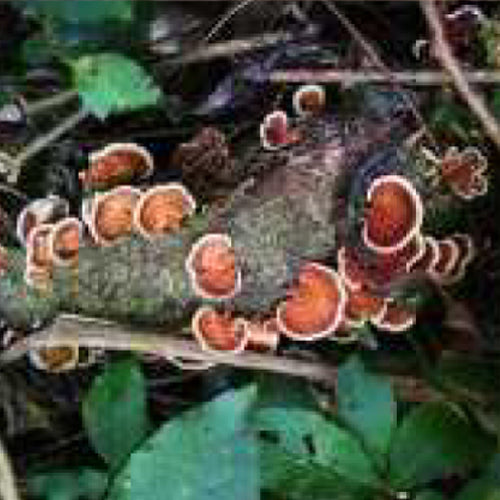
Reishi Mushroom and it's role in Diabetes support
| Rick Magennis
Natural remedies like medicinal mushrooms, also called vitality mushrooms, haven proven helpful in prevention and as a support in the therapy of Type 2 Diabetes. One of them we are discussing today is Reishi mushroom, also known as Ganoderma lucidum, a fungus that some people describe as “tough” and “woody” with a bitter taste. It grows typically in temperate or subtropic regions, particularly on eastern hemlocks that are dead or dying. The fruiting body (above ground part) and mycelium (filaments connecting a group of mushrooms) contain polysaccharides and triterpene constituents, which are accredited for much of its medicinal value.
Reishi has been used for centuries in China to treat diabetes, nourish the heart, enrich the blood, and detoxify the body. In fact, Ganoderma lucidum is one of the most researched herbs in Japan and China, extensively studied for its therapeutic actions as an immune enhancer, cardiotonic, hypoglycemic, and hepatoprotectant. There is growing interest in using Reishi in adjunctive cancer therapies, as well as diabetes management.
Chinese study, which was conducted by researchers at the department of pharmacology of Peking University in Beijing and published in the December 2006 issue of the Journal of Asian Natural Products Research, specifically looked into Reishi's effects on diabetic kidney disease. After the eight-week trial period, the diabetic subjects exhibited noticeably reduced markers of kidney stress, as well as lowered triglyceride and blood sugar levels. The researchers concluded that Reishi mushrooms can prevent or halt the progression of diabetic kidney complications.
Furthermore, it has regenerating effects on the pancreas; it also helps the sensitization of the receptors responsible for the absorption of insulin and claims to have a blood sugar lowering effect. Within the scope of a holistic therapy of Type 2 Diabetes with metabolic syndrome, the combined intake of medicinal mushrooms and Nopal juice (prickly pear) can be very reasonable.
However as it has therapeutic properties against diabetes, Reishi mushroom has many other potential health benefits which complement its use as an adjunct to an antidiabetic regime. For instance, diabetics are prone to reduced immunity leading to infectious diseases and cardiovascular complications. Reishi mushroom can enhance immune function through its enhancing effects on white blood cells, which help fight infection and cancer. One of the active ingredients, called ganoderic acids, appear to combat high BP and reduce LDL cholesterol & triglyceride levels; may also discourage platelet aggregation preventing the thrombus formation which can clog the arteries disrupting the blood flow to heart thus, reducing the chances of myocardial infarction.
Unlike most other medicinal mushrooms, which can be eaten cooked, Reishi has a tough texture that is difficult for some people to digest. It is also common to use powdered forms of the mushroom or extracts that contain these specific molecules.
Therefore, all the amazing health and diabetic benefits Reishi mushroom have with minimal side effects are being used in herbal medicine more than ever before. Along with opening up new horizons for the research and evaluation.

Leave a comment
Your email address will not be published.